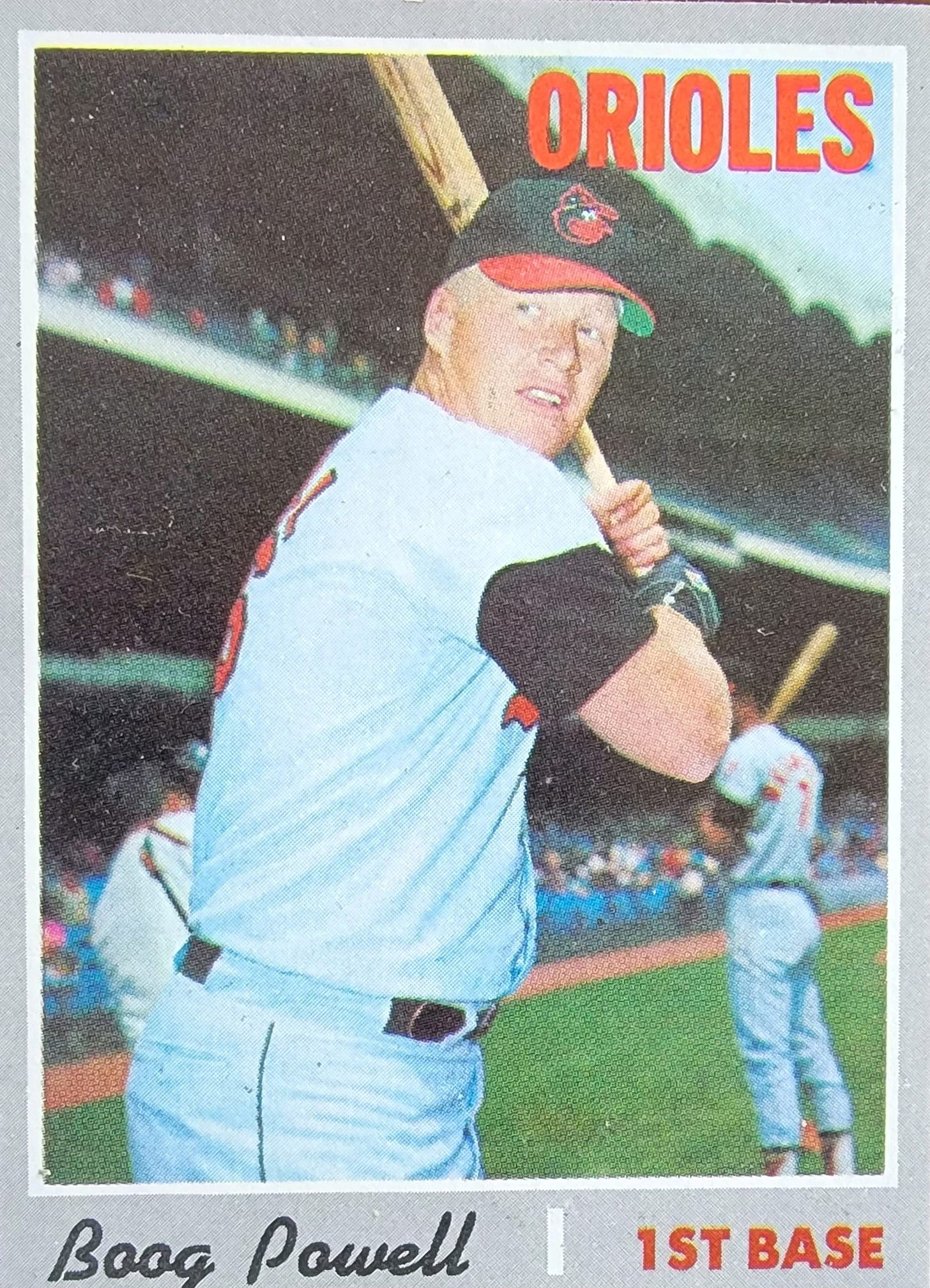The Bird Tapes Interview: Boog Powell (Part 1)
He was an iconic slugger in his heyday and still runs a great BBQ stand. But he is also a master storyteller. In our 1999 interview, he is an expert eyewitness to the Orioles' formative years.
Before I sat down with Boog Powell for my book on Orioles history, I knew he would deliver. Although I was too young to have covered him when he was slugging home runs in the 1960s and 1970s, I had interviewed him several times for the Baltimore Sun and always found him engaging, affable, funny — a classic raconteur.
He was all that and more as we sat in his backyard in Baltimore County in 1999 and my microcassette recorder rolled … and rolled.
He gave a mesmerizing account of how he chose being an Oriole over playing college football. He talked about his fast rise through the minors and his arrival in Baltimore as a very young man. He talked about being the Orioles’ cleanup hitter in their glory years in the 1960s and 1970s. He talked about how little he was paid and the offseason jobs he needed as a result. He talked about a kid from Florida becoming part of the fabric of Baltimore.
He told stories so well for so long that I’m going to split his interview into two posts here at the Bird Tapes.
The first half, available now (below) to paid Bird Tapes subscribers, is really a story in its own right. Recounting the start of his career, Powell is not a star slugger so much as a wide-eyed kid from Key West, Florida, trying to make it in a sport that was far different in the late 1950s and early 1960s. No draft. Tons of minor leagues. Far fewer major league jobs.
He crosses paths with Dean Chance, a future Cy Young Award winner, and Steve Dalkowski, the legendary fireballer who never reached the majors. He idolizes a pitcher named Arne Thorsland who flamed out too soon. He meets Ralph Salvon, destined to become the Orioles’ trainer in their glory years. He plays for Earl Weaver in the distant minor leagues.
He endures Orioles manager Paul Richards using a pitching machine to try to teach him how to scoop up balls in the dirt as a first baseman - an experience he barely survives.
In the end, he became a star. Few players in Orioles history can match his list of accomplishments. Over 14 seasons in Baltimore, Powell hit 303 home runs, drove in more than a thousand runs, made four All-Star Game appearances and played a far better first base than he is known for. (Listen for him saying he used to track how many errant throws he dug out of the dirt.) He batted cleanup on four pennant-winning and two World Series-winning teams.
He is still the most recent Oriole not named Ripken to win the American League’s Most Valuable Player award. (He won it in 1970. Cal Ripken Jr. won it in 1983 and 1991.)
But in his interview in 1999, he was interested not so much in talking about numbers and feats, but rather, about his teammates and friends and the era he inhabited.
This is Boog Powell the person, a true original, wholly authentic. I’ll post the second half of the interview next week.
Keep reading with a 7-day free trial
Subscribe to The Bird Tapes to keep reading this post and get 7 days of free access to the full post archives.






